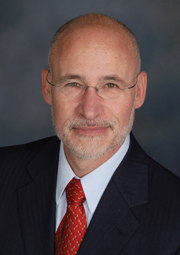These stones belong to us They were smashed and destroyed because of hatred

This Saturday evening and Sunday, we observe a moment of historic sadness and modern significance. The “holiday” is called Tisha b’Av. According to tradition, it is a time of communal mourning. We fast. We do not bathe or wear new clothes. We sit on stools or the floor and we recite passages from the biblical book of Lamentations (in Hebrew: Eicha).
As a community, we will do this on Saturday, Aug. 10, at Congregation Beth Shalom. At 9:45 p.m., there will be a brief Tisha b’Av evening (Ma’ariv) service. It will be followed by a d’var Torah and the reciting of Eicha.
Our communal observance continues on Sunday, Aug. 11, at Kehilath Israel Synagogue. The movie, “The Long Way Home” will be shown at 5 p.m. followed by a panel discussion with rabbis. A Mincha (afternoon) service and brief Torah lesson will follow at 8 p.m. After a brief Ma’ariv service, we will conclude our fast at 8:51 p.m. with a light break fast.
That is what we will do to observe this moment as a community. We hope you will be with us.
However, it begs a question: Why should we care and how does it apply to us today?

Tisha B’Av is about loss. It commemorates the destruction of the First Temple in Jerusalem in 586 BCE by the Babylonians, and the destruction of the Second Temple in 70 CE by the Romans. In addition, people of hate chose that same day throughout history to destroy Jews. In 1096, the First Crusade began. In 1492, the Jews were expelled from Spain. In 1942, mass deportations to the Treblinka death camp began on Tisha b’Av. And there are a dozen other Tisha b’Av anniversaries we recognize.
For Jews, the destruction of both Temples were moments of complete loss. Especially with the Second Temple, it represented who we were, how we prayed ... it was the fulfillment of almost 2,000 years of historical development. We need only to read the Torah — the book of Exodus and the construction of the Tabernacle — to know that the Temple was central to our identity.
And those stones in the picture at the top of this article? Those are the actual stones of the Second Temple. This is the actual street that ran along the length of the Temple’s retaining wall. And the broken pavement and indented stones? That is the result of the Romans’ burning the Temple and the walls — literally — came crashing down upon this street.
Our home was destroyed.
That is why it matters. It matters because it changed who we were to become. It matters because something was taken away from us. It matters because your ancestors and mine (either biological or spiritual) were taken away in chains as slaves. It matters because other family ancestors weren’t so lucky. Many, many died. Because of hatred and prejudice and triumphalism.
And today? That same hatred and prejudice and evil persists. We saw the results of it in El Paso. We saw the results in Charlottesville. We saw the results in Charleston and Pittsburgh. We saw the results in Kansas City at the Jewish Community Campus and Village Shalom. And on and on and on ...
Yes, it is time to talk about guns. But that is not what Tisha b’Av is about. It is a time to mourn and to remember what evil causes. Such evil happens because of demonic speech. It happens because people teach their children to hate, to be racist. It happens because (with our First Amendment rights) anyone can spew hatred that others can read and — because of the world of the internet and social media — it is magnified and glorified and intensified. And the results are the senseless deaths that have happened within our world.
And it is just by chance that it wasn’t the Jews ... this time.
So, yes, Tisha b’Av matters.
It is a moment to remember what happens when hate wins. It is a moment to remember those whose names have been forgotten to history ... and those whose names are fresh in our minds ... who have died because they were simply “other.”
It is a time to remember. It is a time to mourn. It is a time to resolve that Tisha b’Av will be — someday — a historic memory only. That day, though, will only come when each of us stands up and refuses to permit hate speech, racism, divisiveness — regardless of from whose mouth it is uttered — and condemns it loudly and righteously. Only when we recognize that the “other” is our brother and sister ... and not to be demonized ... only when we stand up and protect each human being from being belittled, denigrated, denied their humanity ... only then will we have learned the lesson of Tisha b’Av.
Until then ... let us mourn and let us remember.
Rabbi Arthur Nemitoff is senior rabbi at The Temple, Congregation B’nai Jehudah. This article originally appeared in the congregation’s Bisseleh Bytes e-blast.



